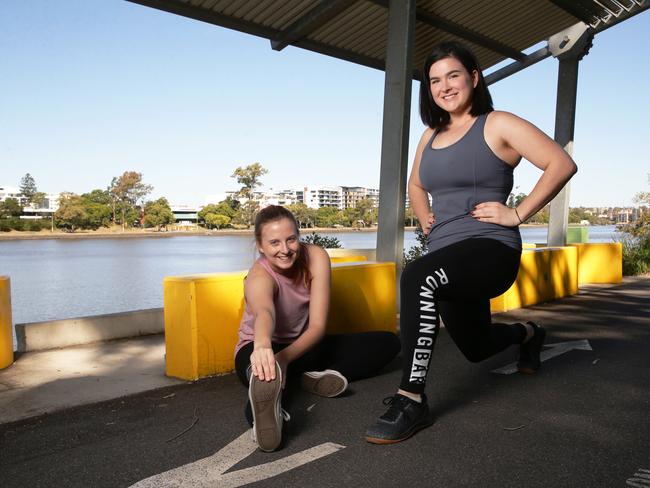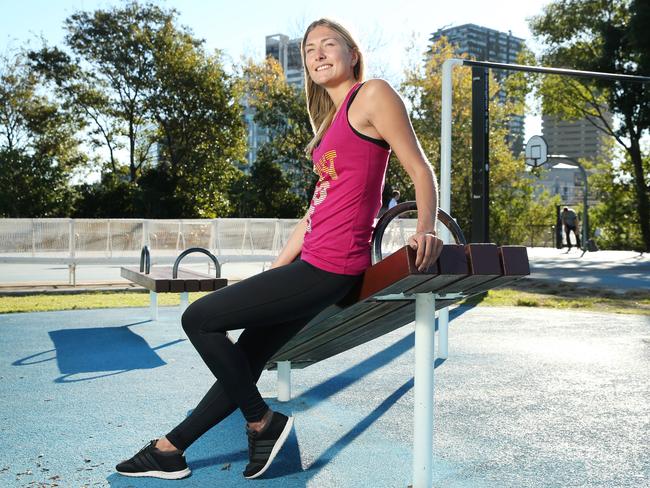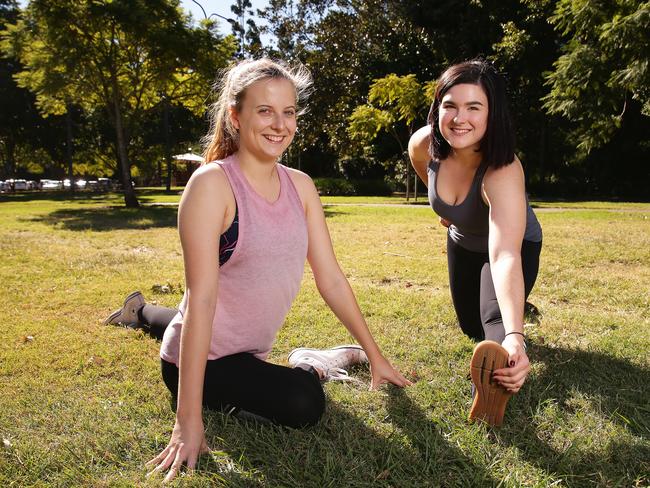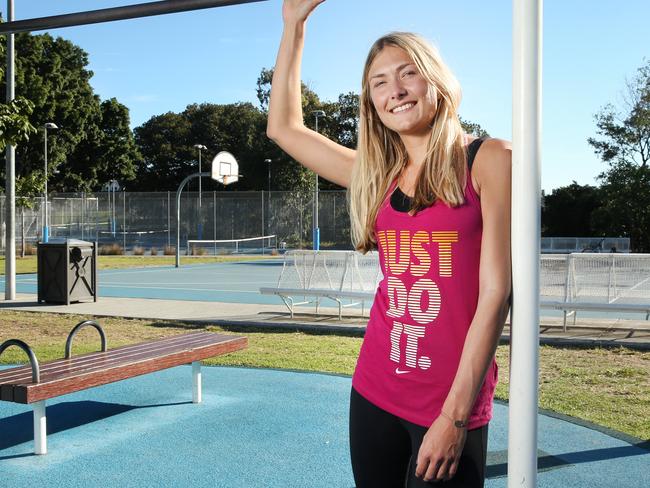Young Australians putting health at risk by failing to exercise
YOUNG Australians are failing to make exercise a priority in their busy lives — and they’re putting their mental and physical health at risk.
Illness
Don't miss out on the headlines from Illness. Followed categories will be added to My News.
EXCLUSIVE
MILLENNIALS are worse than parents or older Australians when it comes to finding time to exercise — and they’re putting their mental and physical health at risk.
New research shows 70 per cent of 18-24-year-olds struggle to make time to exercise compared to 63 per cent of parents, 53 per cent of 25-34-year-olds, 52 per cent of 35-44-year-olds and 29 per cent of 55-64-year-olds.
A total of 68 per cent of Millennials say they don’t have the “mental or physical energy” to exercise after a day of work and family commitments, compared to 58 per cent of 25-34-year-olds, 61 per cent of 35-44-year-olds, 53 per cent of 45-54-year-olds and even 35 per cent of adults aged 65-plus.

A total of 49 per cent of all 18-24-year-olds say they haven’t exercised in so long they don’t know where to start, compared to 37 per cent of 25-34-year-olds and 38 per cent of 35-44-year-olds.
Women are also by and large finding it harder to get time to exercise than men with 48 per cent of females saying they are struggling compared to 39 per cent of men.
The findings are from research commissioned by Suicide Prevention Australia of 1033 Australians.

The organisation said putting off exercise is eroding our mental health and Millennials were the worst at it.
Kim Borrowdale, CEO at Suicide Prevention Australia, said it was more vital than ever that young people understood the benefits of exercise beyond the physical.
“I would say it is all about the perceptions of the time you have and also the physical and emotional energy you are expending,” Ms Borrowdale told News Corp.

She said Millennials were less likely to be lazy but more focused on the right now, rather than the wholistic picture.
“Some young people have reported financial limitations, issues around body image and just generally not seeing it as a priority.”
Suicide is the leading cause of death for young people in Australia.
In 2016 more than a third of deaths of 15-24-year-olds were due to suicide and more than a quarter aged 25-34.
MORE: Parents with demanding jobs are risking their kids mental health
MORE: My mum didn’t have the support she needed before her suicide
MORE: Parents spending huge amounts on gym memberships for kids

According to the Australian Bureau of Statistics, 11.7 deaths per 100,000 people were from suicide in 2016, up from 10.6 per 100,000 people in 2007.
David Lubans, professor of physical activity at the University of Newcastle, stopped short of calling Millennials lazy but said it was clear they had other priorities and were missing the mental health benefits of exercise.
“It reflects priority rather than actual time,” Dr Lubans said.
“I think we also aren’t impressing upon our young people the importance of exercise when they leave school. That they’ve got to keep this up as life only gets more complicated.”
Millennial Cassie Phu, 23, said it was not about being lazy but more that she had other priorities — which included watching Netflix, hanging out with friends and scrolling through her Instagram feed.
“I think because we are still in our early 20s we think our metabolism will be the same forever and ever so we don’t need to exercise because we don’t see the results straight away,” she said.
Health Minister Greg Hunt said it was important for Australians to continue exercising at all ages.
“Exercise is a habit and it is important to build that habit. Exercising has many benefits and research has found that it can help improve mental health,” Mr Hunt said.
“Improving mental health is a personal passion of mine and in this year’s Budget the Turnbull Government announced an increase of $338.1 million in mental health funding.”
Opposition health spokeswoman Catherine King said the research was “concerning”.
“Suggestions that young people aren’t finding the time to exercise are concerning,” Ms King said.
“We know that prevention is better than cure, both for our personal wellbeing and for Australia’s heath system as a whole — and exercise is a key part of the prevention puzzle.”
Suicide Prevention Australia and Anytime Fitness will this Friday host a 24-hour Tread Together treadmill challenge in order to raise funds for suicide prevention. Participants can register to run in 15-minute blocks on the treadmill to keep it running for 24-hours from 3pm on Friday.
They’re aiming to raise $500,000.
If you are struggling with mental health issues and need help you can call Lifeline anytime for free on 13 11 14.
If you or someone you love is in crisis or needs support right now, please call Lifeline on 13 11 14 or BeyondBlue on 1300 224 636. If it is an emergency please call 000.


